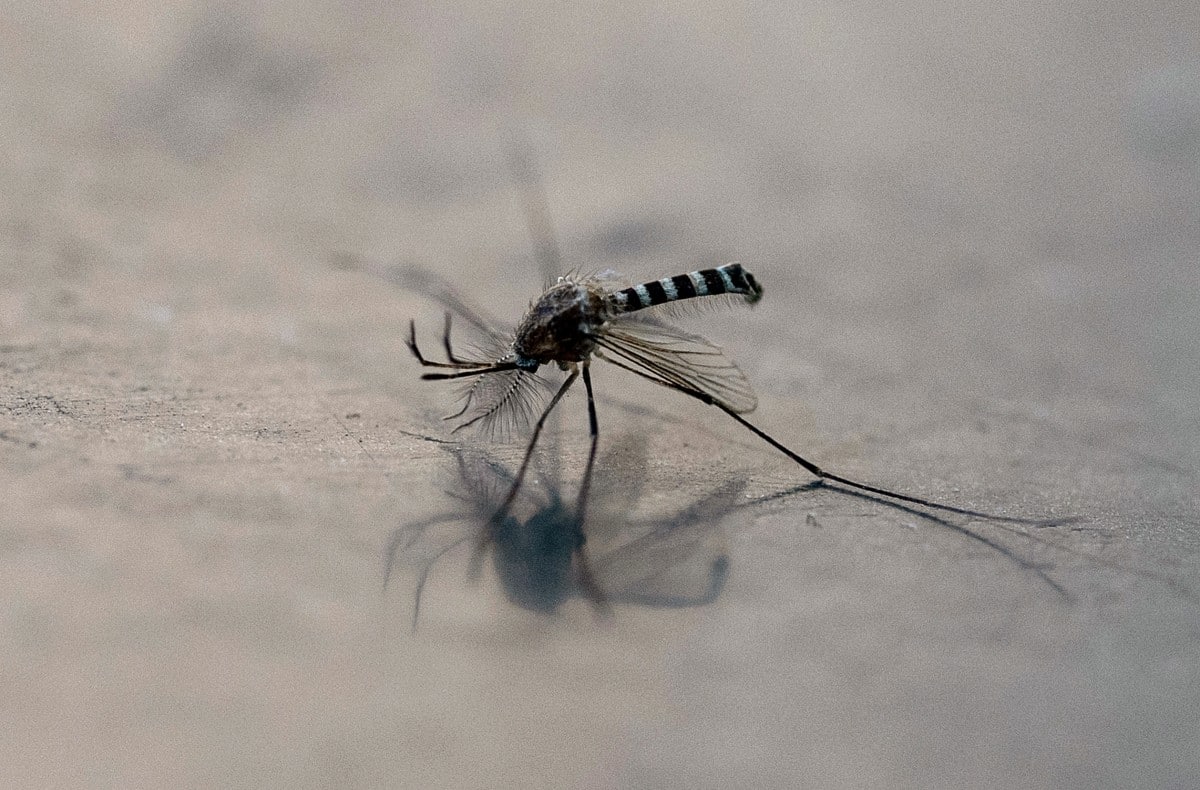Mosquitoes with ‘toxic’ semen could stem disease spread – research

A mosquito (Aedes aegypti) is pictured on a surface in Mexico City on December 2, 2024. FILE PHOTO/Agence France-Presse
SYDNEY — Genetically engineered mosquitoes with toxic semen could be a new weapon against tropical disease, Australian scientists said after trialling the novel pest control method.
The “toxic male technique” aims to breed mosquitoes that express venomous proteins in their semen, killing off females after mating.
Female mosquitoes are targeted because only they bite and drink blood, thereby spreading diseases such as malaria and dengue fever.
READ: As temperatures rise, malaria-carrying mosquitos slowly migrate upward – study
Scientist Sam Beach from Australia’s Macquarie University said the method “could work as quickly as pesticides without also harming beneficial species”.
“This innovative solution could transform how we manage pests, offering hope for healthier communities and a more sustainable future.”
The first proof-of-concept trials used fruit flies, a common laboratory species favored for its short two-week life cycle.
Female flies that bred with “toxic” males had a significantly reduced lifespan, the scientists found.
Researcher Maciej Maselko said the team would now trial the method in mosquitoes.
READ: Dengue cases in PH rise to 128,824 from Jan to July, says DOH
“We still need to implement it in mosquitoes and conduct rigorous safety testing to ensure there are no risks to humans or other non-target species,” he said.
Genetic engineering has been used for years to control populations of disease-spreading mosquitoes.
Typically, these approaches slow reproduction by releasing hordes of male insects that are genetically modified to be sterile.
Computer models showed techniques actively killing biting females could be far more effective, the research team said.
The research was described in a paper published by peer-reviewed journal Nature Communications on Tuesday evening.